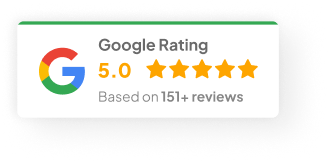29 Jul 25
Top Features Every Restaurant Web Design Agency Should Offer
You can be plating the best food in town and giving five-star service, but if your digital presence isn’t pulling its weight, customers are walking right past your door online and off.
Most diners are now searching menus, reviews, and reservation options before they even think of showing up. And if they can’t find your website, or worse, if they land on one that looks outdated or breaks on mobile? That’s a problem.
Social media can help, sure. But it’s a rented space. You don’t control it, and one algorithm change can tank your reach overnight.
What works? A professionally-built, high-converting website made specifically for restaurants. Built right, it becomes your best staff member—always on, always welcoming, always selling.
Here’s what to look for when choosing a web design agency that truly understands restaurants, and what features that website absolutely needs.
Why Restaurants Still Need a Website (Even Now)
It’s tempting to go all-in on Instagram or Facebook. And for marketing? Go for it.
But relying only on social platforms is risky. One shadowban, one policy change, and your whole digital storefront disappears. Poof.
A study found that 70% of diners prefer ordering directly from a restaurant, not third-party apps. That’s not just about convenience—it’s about trust, speed, and often, better pricing.
Printed menus still have their place, no doubt. But they can’t update themselves in real time. They won’t highlight gluten-free options, or promote tonight’s special. A solid website handles all of that, and more.
What Your Web Agency Must Include in the Build
If you’re working with a web design team for your restaurant, make sure they’re not just building you something pretty. It’s got to function too.
Here are the non-negotiables:
- Mobile-Responsive Design: Over 60% of restaurant website traffic comes from mobile. If your website’s not easy to use on a phone, customers will bounce before they even see the menu.
- Editable, Filterable Online Menu: Your digital menu should be:
- Easy to update in-house
- Filterable by preferences (vegan, gluten-free, etc.)
- Visual because a good food photo still sells better than a description
- Integrated Reservations & Ordering Systems: Make it simple. Platforms like OpenTable, Resy, or custom booking tools should be built right into the site.
- SEO Setup Done Right: If your website doesn’t show up when someone types “Thai restaurant near me,” what’s the point? Solid SEO work includes:
- Fast loading times
- Local SEO strategies
- Keyword-rich content (written for humans, not just bots)
- Contact Info & Maps That Work: No one wants to dig around for your hours or phone number. These details should be instantly visible. Bonus points for embedding Google Maps for directions.
- Event & Promo Features: Whether it’s Wine Wednesdays or live jazz on Fridays, your website should allow quick updates to promote what’s happening at your venue.
- Accessible Design: This one often gets skipped. It shouldn’t. A good agency will follow WCAG guidelines, making your site usable for everyone, including those with vision or motor impairments.
Building a Restaurant Site That Actually Converts
You’ve got the features. Great! But the execution makes or breaks the site.
Some best practices to keep in mind:
- Speed is everything. A site that loads in 1 second converts 3x better than one that takes 5.
- Skip the stock photos. Use real, high-quality images of your food, your space, your team.
- Repeat your calls-to-action. “Book a Table” or “Order Now” shouldn’t be hidden in the footer.
- Stay consistent. Fonts, colors, language – it should all match your brand’s vibe.
- Keep it simple. Limit your top menu to 5–7 clear pages:
- Home
- Menu
- About
- Contact
- Reservations
- Events (optional)
Want to Skip the Hassle?
Getting a site like this up and running takes more than plugging a few things into a template. Strategy, UX, content, SEO, speed, integrations. It’s all got to click together.
At Chromatix, restaurant websites are something we know back to front. Our team’s been working with hospitality brands for over a decade, and we’ve seen firsthand what makes people click that “Book Now” button or walk away.
Your team should be focused on plating amazing dishes, not debugging a menu page or fighting with broken forms. That’s where we come in.
Bottom line
A professional restaurant website is more than a digital menu. It’s your brand’s first impression. And it should be pulling its weight, bringing in bookings, orders, and customers night after night.
With 77% of diners checking websites before they visit or order, not having a proper site is leaving money on the table.
Want help building one that actually works?
Reach out to Chromatix.


